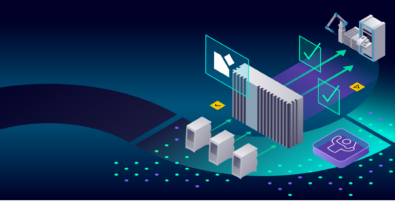AI and the future of coding

Over the last few months, the internet has been abuzz with talk of OpenAIs ChatGPT, a chatbot based the GPT-3 family of large language models. Freely accessible to users on the web, ChatGPT has done everything from letting people converse with fictional characters to helping with homework or teach difficult concepts. One of the most interesting uses, however, is its ability to write code from simple, natural language prompts.
Although code generated in by AI is not accurate enough to completely take the place of code written by developers, it does offer a glimpse at what a true no-code solution to complex tasks may look like, opening the doors for anyone with an idea to leverage tools to their fullest extent and develop anything they can imagine.
Software development is a multi-billion-dollar industry and a vital part of the world as we know it today all while being accessible, at least in theory, to anyone with a computer and an internet connection. However, the truth is that, just like any other skill, proficiency in software development and coding take anywhere from months to years to develop depending on how skilled a user wants to become.
While there is certainly nothing wrong with the idea of needing to invest the time to learn a skill, as the world becomes increasingly digital more and more tools are requiring a modicum of programing knowledge to use – or at least get the most out of. While digitalization and advancement are commendable goals, not everyone has the time or desire to learn to program on top of maintaining and developing their existing skillsets which is where AI comes in.
With the increasing requirement of coding knowledge to use professional software or develop efficient workflows, companies are looking to develop low- and no-code solutions which will allow users to benefit from these advances with minimal coding knowledge. Historically, the challenge in this approach has been that the way humans think and communicate ideas is very different then the way computers do which makes translating human intention into actual code a complex problem in its own right.
Of course, bridging the gap between humans and computers is one of the areas in which AI excels, as seen with the success of programs like ChatGPT which are already capable of taking close to natural language inputs and translating them into complete code. In the future, integrating AI language models trained in both human language and on relevant code (such as Python or C++) directly into complex programs could allow even users with no programing knowledge to develop program extensions and complex workflows with simple natural language inputs.
Beyond assisting with the usage of advanced software, expanding the scope of no-code solutions to general purpose coding and app development allows for a greater democratization of technology as anyone with an idea could easily develop it into a complete app or program – regardless of skill set. Everyone had ideas for all kinds of ways to improve their lives, jobs, or to create something new entirely but without the skills to back it up, many of these are simply forgotten. Now, at least in the realm of software, an AI partner could present a way for everyone to bring their ideas to the world without limits on time or skillset – truly bringing advanced technology to the masses.
Humans have a limitless capacity for creativity which may never be matched by machines but having such a wide scope of possibilities can also make acting on those ideas challenging. But now, more so than ever, the tools themselves are becoming smarter and more interactive, allowing everyone from an expert using a professional tool to a novice creating their first app to work with the confidence of a seasoned developer. AI will likely never replace real developers for all tasks but it can become a valuable tool in making their expertise accessible to users of every skill level. This will become increasingly important as digitalization continuous to be an important topic in many industries and more people want to work efficiently or bring their ideas to life in the digital world.
Siemens Digital Industries Software helps organizations of all sizes digitally transform using software, hardware and services from the Siemens Xcelerator business platform. Siemens’ software and the comprehensive digital twin enable companies to optimize their design, engineering and manufacturing processes to turn today’s ideas into the sustainable products of the future. From chips to entire systems, from product to process, across all industries. Siemens Digital Industries Software – Accelerating transformation.


